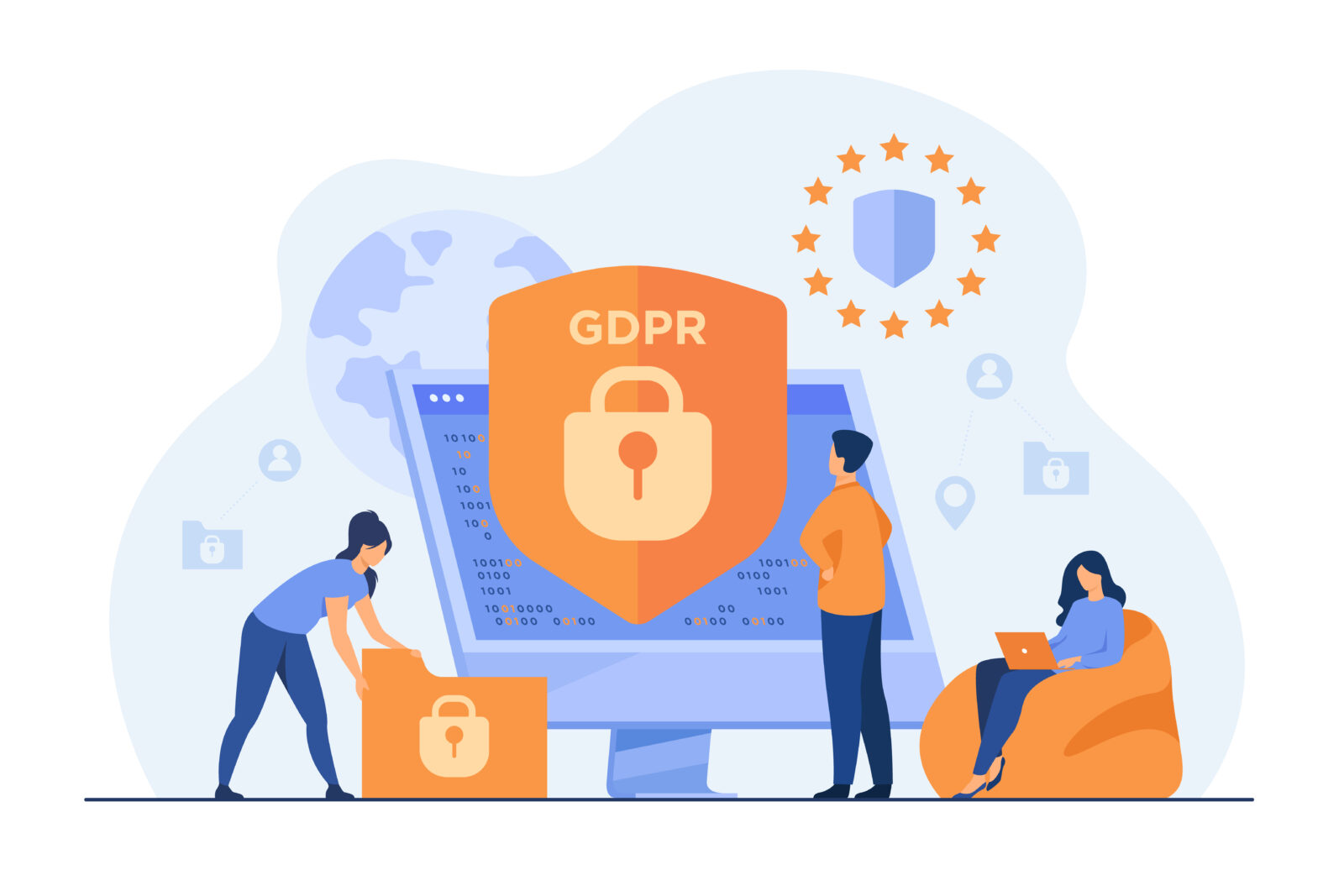Security Compliance
Your Security Means Everything.
Reports from various resources have concluded that data theft happens often, and everyone knows it is a serious problem. TGI delivers serious security solutions.
We protect against security data breaches and the possibility of litigation. In addition, we assist in keeping companies compliant with government regulations, such as eDiscovery, Sarbanes-Oxley, FERPA, and HIPPA.
We help clients by providing them with tools to increase transparency throughout their organizations while securing access and use of critical data. We also help them understand the complex path to securing their information and current data compliance regulations and how they can affect them. TGI takes security threats seriously and has taken a leading role in educating our customers about the security threat that may exist in their organization.

Device Security
The potential for this information to get into the hands of someone that might use it against you or for their financial gain cannot be ignored. The good news is that this information can be rendered harmless and impossible to read very easily.

Access Security
TGI can help you secure your copier/printers in many ways, from simple 4-digit access codes to complex card-authentication devices linked to Active Directory.

Document Security
TGI has numerous ways to protect your documents ranging from a simple password-protected print option to the ability to create encrypted, password-protected PDFs on the fly.

End-of-Life Security
Due to the recent spotlight on copier security in the news, there have been general concerns that unauthorized people could access information stored on a copier’s hard drives after the equipment is removed from a customer’s premises. TGI provides a free service to wipe all data off the hard drive of the device we replace.
Data Use Compliance Requirements
Data use compliance meets the regulations and standards governing how government organizations and other companies keep data from damage or data breaches. It applies to consumer data, financial records, employee personal data, and more. An organization is compliant when the way it transmits, stores, and manages data follows regulations put forth in a series of standards and laws.
sensitive data recovery
Sensitive data recovery is a tool that automatically identifies, tags, and classifies sensitive data. It helps companies keep tabs on the type of personal data they have to avoid anything falling through the cracks. Data security only happens because an organization strives to make wise data security choices. Each organization needs a detailed plan outlining the data compliance it requires and how those compliance regulations are to be reached and that you maintain compliance.
Some businesses partner with a third-party data security platform, like TGI, to assist in achieving and maintaining personal data security compliance. Leveraging a platform may provide a flexible, dynamic data masking and attribute-based access control that helps ensure enforced compliance cloud data platforms have maximum data utilization and data privacy.
Many companies think that achieving data compliance is the end of the job related to security compliance. Over time, consumer data standards change, new regulations emerge, and goalposts shift. Standards you have established may slowly lose priority and fall by the wayside with new leadership or hires. It is worth noting that the number of states proposing specific data use and security governing legislation is increasing. We expect to see more data information and compliance rules as individual states pass their own mandates.
Those are other reasons for regular data assessment. TGI can help. Our full-scale platform for data access controls keeps data accessible, compliant, and secure. The sooner steps are taken to internally secure gaps, the sooner your bottom line is protected.
Three critical areas of focus.
- Knowing what type of data you have
- Developing a data compliance plan
- Performing regular data assessments
What Is the Importance of General Data Protection Regulation
Compliance laws are more than hoops organizations jump through to prevent being fined. They are designed to protect businesses, employees, and consumers. The data protection regulations are built upon practices that assist in keeping data secure from leaks, destruction, improper use, breaches, and more. Organizations that stay compliant are not only lawful participants but have a data management system that is more streamlined, which improves effectiveness and profitability.
Data Compliance Laws and Limitations
It is essential to know that compliance laws help organizations store and secure data properly but have limitations. Many companies fall into the trap of believing being compliant also means being secure.
Every business is different. Compliance laws cannot account for the intricacies of each organization. For example, a company compliant with relevant standards may have holes in its data access controls that expose the organization and its customers. Even if a data breach does not result from noncompliance, devastating consequences such as fines, lawsuits, bad press, and loss of consumer trust can occur.
Below are some of the most widely applicable laws and processes in the United States and beyond. It is a list of some regulatory laws governing sensitive day use. The list covers some of the most important and common regarding compliance maintenance.

eDiscovery
Discovery refers to the initial phase of litigation that requires parties in dispute to provide each other with relevant records and information along with evidence related to a case. The key to eDiscovery is the proactive management of records and information with control over handling potential eDiscovery requests.
eDiscovery is the civil litigation process carried out in electronic format. It encompasses electronically stored information. It runs from the time of a foreseeable lawsuit until the presentation of digital evidence in court. The process includes:
- Identifying data as relevant by lawyers and placing it on legal hold.
- Lawyers on both sides determine the scope of discovery, identifying the relevant. electronically stored information and making eDiscovery challenges and requests. Searching parameters can be negotiated with an auditor or opposing counsel to identify what is being searched and ensure that non-evidence is screened out and needed evidence is identified.
- Extracting and analyzing evidence using digital procedures and converting to a TIFF or PDF form to use in court. It is often advantageous to use analytical search techniques, such as trend and pattern recognition, so that that task can be more efficiently performed and use fewer human resources.

Sarbanes Oxley Act
In 2002, the Sarbanes-Oxley Act was passed with bipartisan congressional support to improve public disclosure and auditing in response to accounting scandals. Paul Sarbanes and Michael Oxley were a senator and representatives who sponsored the bill. One of the primary goals was to prevent a company from interfering with independent financial audits. Sections of the bill enhance the independence of audits by regulating internal procedures and management.
Public companies must adopt internal procedures that ensure the accuracy of financial statements. It makes the CFO and CEO directly accountable for documentation, submission, and accuracy of the internal control structure and financial reporting. Provisions for oversight and enforcement were sought that impose criminal liability on officers who willfully submit non-compliant financial statements to ensure the effectiveness of the Act.
It is unlawful for any director or officer to exercise influence on audits through fraud, manipulation, or coercion. Management must establish adequate structural control and procedures for financial reporting. They must submit an end-of-year report on the internal structure control effectiveness.

FERPA
The Family Educational Rights and Privacy Act is a federal law enacted to protect student education records’ privacy. It applies to private and public elementary, secondary, and post-secondary schools receiving federal funding.
The law also applies to local and state agencies receiving funds from a US Department of Education program. It serves two purposes.
- It gives eligible students or parents more control over educational records.
- Prohibits the disclosure of personally identifiable information without the consent of minor children’s parents of eligible students.
Personally identifiable information includes biometric data, such as facial recognition and fingerprints, and identification numbers like telephone numbers, IP addresses, national identification numbers, tax identifiers, and passports. Schools that are not complying with FERPA risk the loss of federal funding. Private and parochial schools not receiving federal funding are not subject to FERPA.

HIPPA
Among the most widely known compliance laws is HIPPA. It requires healthcare providers to ensure that digital information is secure, confidential, and stored. The Health Insurance Portability and Accountability Act mandates healthcare providers make reasonable efforts in data protection against improper use, security breaches, and threats to health data. Steep fines of as much as $50,000 per violation are the consequences for failure to comply. There is a cap of $1.5 million per year.

GDPR
The European Union signed the GDPR into law in 2018. It specifies standards for organizations that process the personal data of EU citizens. The General Data Protection Regulation applies to European companies and a broad swath of organizations in the US. It requires organizations to process personal data protection against destruction, damage, loss, processing, and unauthorized data collection. Significant fines are possible for as much as four percent or more of an organization’s annual revenue.

FISMA
FISMA was enacted in 2002 and affected all federal agencies, federal agency subcontractors, federal agency service providers, and any entity that operates federal agency IT systems. The Federal Information Security Management Act requires agencies to categorize stored data by the negative impact if it were compromised, breached, or hacked.
These organizations and agencies must also conduct regular risk assessments to reduce data compromise risks to an acceptable level via proper data controls. Agencies failing to meet FISMA standards may face limited capabilities, bureaucratic oversight, and reduced budgets.

PCI DSS
The Payment Card Industry Security Standard pertains to businesses dealing with processing, transmitting, or storing credit card information. It is designed for data protection of cardholder data stored in paper records and electronically.
Organizations dealing with credit cards must build a secure network that implements specific cardholder data access controls and maintains a regularly tested vulnerability program and security system. Organizations failing to follow PCI DSS can expect fines as high as $100,000 per month and may no longer be able to accept credit cards.

Other Frameworks and Standards
These additional frameworks and standards can affect a business depending on the industry and type of data managed and stored.
- NIST SP 800-53 – A framework providing a standard that government agencies follow to be compliant with FISMA
- NIST Cybersecurity Framework – An additional framework that focuses on cybersecurity risks mitigation by safeguarding against a data breach, improving data security, and more
- ISO 27000 Series – A series of IT security standards for companies that want to protect data assets, such as IP, employee data, and financial data. They include a standard for implementing and maintaining information security management systems.
